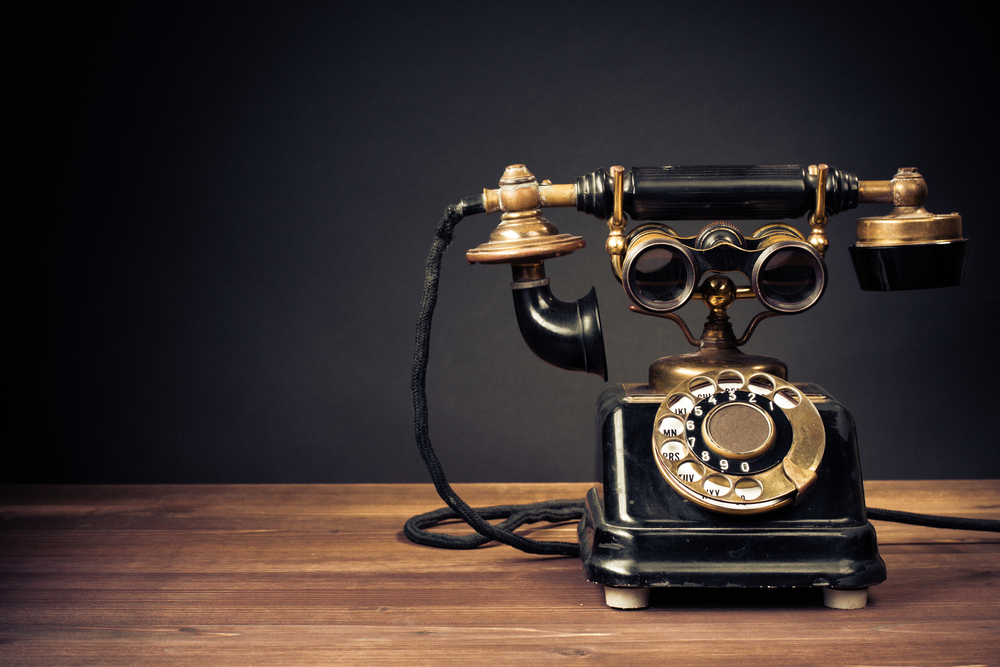
Get Paid to Share Your Expertise
Help shape the future of business through market research studies.
See Research StudiesYou have one chance to make a great first impression. Nowadays, that first impression is made over miles of fiber-optic cables.
Whether or not that feels impersonal to you, the phone interview has become quintessential to the modern interview process. Since an average job will generate around 250 applications, employers simply don’t have time to set up in-person interviews with every appropriate candidate. Like it or not – you have to expect that your next foray in the job market will be met with a telephone interview.
You are going to have to ace the phone interview if you want to make it to the in-person interview. We’ve gathered tips and tricks, along with mock examples, that you can employ for a successful phone interview.
The Preparation
Before you even pick up the phone, you have much to consider. First, is your environment. Be in a quiet area where you are certain to be far from interruptions. Children, passing cars, barking dogs, televisions or other appliances won’t sell you as a potential employee – so make sure the recruiter doesn’t have to listen to them.
Next is your attire and appearance. “But they aren’t going to see me!” you might say. Unless it is a video call – yes, you are absolutely correct. But being dressed up as if you were in the in-person interview will put you into the proper mindset. If you are at a desk, sit up at the edge of your chair.
Be ready at least 10 minutes in advance. Have everything at the ready: phone, note pad, pencil, glass of water. Check your email and be on the lookout to see if your interviewer has requested to push back the call, or advance it forward. Having this cushion of time will allow you to calm any nerves, and focus your mind.
All these smaller factors may sound insignificant, however, being in the zone mentally starts with you and your environment.
The First 15 Seconds
Keep your ears open. You will have to take in a lot during this short time – as it will set the tone for the remainder of the call.
First, make sure you pick up on how your interviewer identifies himself. First name only? Mr(s). X? Be sure to use that name. Not doing so can show lack of respect, and that is a great way to ruin your first impression.
Next, you need to pick up on their temperament. Depending on who is conducting the interview, how many calls they have already had that day, what the weather is like, or if their favorite team is having a bad season – your interviewer can have any emotion between angry, and ecstatic. Their rhythm might be slow, with a conversational and informal tone, or they might be hurried, and eager to get through the call as quickly as possible. You will need to respond in a complementary manner for the duration of the call.
The Interview
Before your interview, do some research to find out who you are interviewing, and their role within the company. Depending on the size of the organization, you may be speaking to your future direct report, or you may be speaking to a recruiter. Come prepared with an effective interview for either.
If your call is with the recruiter or HR generalist, you should avoid getting too technical or avoid the jargon related to the functional area. It is possible that the recruiter will not be well versed in the subject matter, therefore you should be prepared to speak more about your impact within an organization, your Problem-Action-Resolution (PAR) stories, and your cultural fit.
Keep in mind that the HR generalist is more likely to have the following goals in mind:
- Confirm you have certain skills that might not be on your resume, even if they might be a given (word/excel/powerpoint)
- Assess your cultural fit
- Ascertain how much you want the job
If you are speaking to the department manager, now is your chance to show a bit of subject matter expertise. They will still most likely be interested in the aforementioned items, but they will be more inclined to dive into the minutia to confirm you have the right chops for the job.
During the interview, remember to achieve an appropriate balance of delivering facts, being conversational, and not talking the interviewer’s ear off.
Like any interview, do further research so you can be prepared to show how you can solve their pain points. Prepare your PAR stories (you should rehearse these – but DON’T read from a script!), learn how their organization functions, and have questions prepared for your interviewer.
The Final 15 Seconds
Before you exchange pleasantries and hang up, you have a few important items left!
It sounds silly – but after you have spoken with your interviewer, and hopefully had a chance to learn about the company or role, tell them you want the job (assuming you do). Don’t be desperate, but reiterate that with all you have learned from the call, you know you are a great fit for the role, and that you want to help bring the company to the next level. Remember that part of the reason for having a phone interview with a potential new hire, is to determine how serious they are about the opportunity.
And last but not least: nail down the next steps. Make sure both you and your interviewer have established what is to be expected. If a follow-up call with a different hiring manager or recruiter is needed, make sure you have all the details about who, what, and when. If the next step is an in-person interview, make sure you have confirmed all details about location, date and time.

 Ivy Exec
Ivy Exec